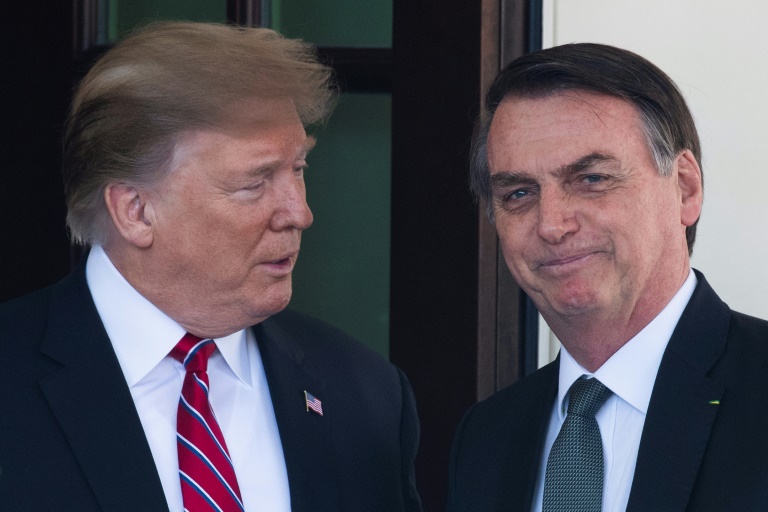Across the globe today, there is a palpable sense that democracy is under siege. Authoritarians have made gains in every region of the world over the last decade, including in countries long-viewed as stable democracies.
As the rights monitor Freedom House puts it, “the pattern is consistent and ominous. Democracy is in retreat.”
It wasn’t supposed to be this way. After the fall of the Soviet Union, intellectuals in the West declared it was “the end of history.” With the downfall of authoritarian communism in Russia, American-style liberal democracy, they said, would slowly and steadily prevail throughout the world.
But for the last 13 consecutive years, Freedom House has found that global freedom has been in decline.
Walter Newell, a professor of political science and philosophy at Carleton University, has studied authoritarianism and its long, bloody history for decades. This year, he published an updated edition of his latest work, “Tyrants: Power, Injustice, and Terror.”
Reviewing “Tyrants” in the conservative Washington Free Beacon, Aaron Maclean imagines a left-wing criticism of Newell’s analysis, which largely absolves the West of complicity in the persistence of tyranny today.
“Newell further whitewashes, or at least too easily dismisses, the dark side of liberal democracy’s own record, in particular the legacy of unrestrained capitalism and its scheming handmaiden, imperialism,” Maclean writes, noting that he does not find such a rebuke convincing.
With democracy on the defense around the globe, The Globe Post‘s Bryan Bowman spoke with Newell about the forces that are driving tyranny in the world today, and challenged him about the role that the United States and other Western powers play in this story.
The following interview has been lightly edited for length and clarity.
Bowman: There seems to be widespread concern about the strength and stability of democracy today. As you look around the world, how do you assess the state of democracy and conversely, the state of tyranny in the present moment?
Newell: I see roughly the same thing that I thought a few years ago, which is that there’s kind of a stalemate between the forces of democracy and the forces of tyranny. I think democracy is prevailing. But I also think it’s beset by a series of pretty strong challenges to it. Some of those I think are rather different in recent years to what they were previously.
Bowman: In particular, many are concerned about the rise of the authoritarian right. In Brazil, Jair Bolsonaro, who openly praises the former military dictatorship, has risen to power. In Hungary, the far-right authoritarian Viktor Orban continues to accumulate power. In Italy, Matteo Salvini’s far-right League Party has temporarily lost power but remains a significant political force. And in the U.S., many believe that Trump himself is something of a would-be dictator. Do you believe that this trend represents a significant threat to liberal democracy as we know it?
Newell: Yes, conceivably. And it’s certainly a significant development. It seems to me there’s two dimensions to this, and one would be the existence of already extremely powerful authoritarian dictatorships led by China, but also including Putin’s Russia. Then there is also the phenomenon you mentioned of the alt-right and the rise of populist parties as typified by Orban or by populist movements like [French politician Marine] Le Pen’s. And, of course, those who believe that Trumpism represents a kind of American installment of the same phenomenon.
There is clearly some overlap between the two because, for example, Le Pen is a great admirer of Putin. And Orban, on a certain level, has also expressed his admiration for the robust nationalism of Putin’s Russia. So on one level, you’ve got this constellation of very powerful nation-states that I would call the 21st century anti-democracy league. Then you’ve got the rise of populist movements in Europe and arguably in the U.S.
Bowman: In your book, Tyrants, you make a distinction between what you call “garden variety” tyrannies and “millenarian” ones. What do you see as the defining distinctions between these forms of tyranny?
What I meant by the first kind is the kind that we’ve always had with us going back to the ancient world, where the tyrant is a person who basically regards an entire society as his personal property to be exploited on behalf of himself and his cronies or his family. There are plenty of those people around today, like [Syria’s Bashar Al] Assad. They’re the most enduring variety of this.
What I think is distinctively new about modern tyranny is – starting with, say, the French Revolution and continuing with the Russian Revolution, National Socialism, Maoism, the Khmer Rouge – you have an attempt to build a kind of utopian society on earth. This is why I use the term millenarian, because it’s almost a sort of perverted form of religion. That millenarian impulse is still alive and well.
The threat posed by jihadist terrorism is in abeyance to a certain extent at the moment, but it’s by no means disappeared. It’s just retreated from view. But these authoritarian dictatorships also, to some extent, have a millenarian dimension to them as well. They’re not just about power and wealth.
Bowman: If I’m not mistaken, and please correct me if I’m wrong, the examples you give of garden variety tyrannies are, with maybe a few exceptions, governments that are aligned with the U.S. and other major Western powers. And most of the examples you give of millenarian tyrannies are adversaries of the West.
What would you say to someone who’d make the criticism that you’re effectively brushing aside the dictators that are favorable to Western interests and vilifying those that are not, and that the other distinctions you make are somewhat arbitrary?
Newell: Well, I hope I wasn’t brushing them aside. I certainly think Assad is a major war criminal and major human rights abuser. He has committed atrocities on a genocidal scale. And I think it’s certainly true that the United States has a history of aiding and abetting right-wing dictatorships, which for various reasons do identify with the West and see in the U.S. a more likely ally than, say, the Soviet Union in the past.
But what I’m really trying to suggest is that there are distinctions among the varieties of tyranny. And it’s not really a question of saying that non-millenarian tyranny is somehow less bad or less morally reprehensible. I’m not saying that Assad is somehow less bad than Mao. I’m just saying there are certain ways of classifying tyranny. I took a stab at suggesting three very broad rubrics. I don’t regard them as exhaustive and I know that they overlap.
So, I certainly don’t want to be seen in that way. But that said, I think the historical record speaks for itself in terms of the methodical use of terror and destruction to liquidate entire classes and races of people. In many cases, they do this in the name of a certain kind of Marxist ideology. Although, I hasten to add, obviously not always, and the paramount case of that would be National Socialism.
Bowman: You say in the book that you agree with the neoconservative argument that Western powers should not act against garden-variety tyrannies because something worse may come about if they do. And you say that “it is likely the case that garden-variety tyrannies have a better prospect for evolving into democracies than the millenarian kind.”
You give Augusto Pinochet’s Chile as an example of this, but isn’t it true that Chile was already a democatic society before Pinochet came to power in a U.S.-backed coup? Salvador Allende, the leftist president before Pinochet, had been democratically elected, as had a string of presidents before him. And the same might be said about Iran. You argue that the Shah was preferable to the Ayatollah, but you don’t mention that a democratically elected president, Mohammad Mossadegh, was overthrown in a coup orchestrated by the U.S. and Britain that was essentially about oil interests, leading to the return of the Shah.
So is it really fair to say that these Western-backed tyrannies are a lesser of two evils when it’s often the case that they replaced prior democratic governments that challenged Western interests?
Newell: My own recollection of what I said about Chile under Pinochet was that it was such an extreme example of my hypothesis as to call it into question. In other words, I think that the horrifying record of Pinochet would have to make one never invoke this maxim of the lesser of evils as some kind of absolute. I would freely admit that my own thesis there is seriously frayed by that one horrible example.
In the case of Iran, I think that, while not denying the American role is the overthrow of Mossadegh – when was that, the early ‘50s?
Bowman: Yes, 1953.
Newell: I still think that the Iran of 1978 under the Shah does fit the pattern of what I call a fully modernizing despot who, while imperfect from our perspective, especially in terms of democratic power-sharing and human rights, is attempting more or less to create something like a secular society. But he fell short of doing so satisfactorily and wanted to hold onto power in certain crucial respects. This creates a situation of instability in which more radical forces are waiting in the wings.
I think that the Western powers and especially the United States have a very uncomfortable choice to make in that often as not, they are better off not pulling the props out from under that insufficiently democratic authoritarian regime, unless they’re fully aware of what might sweep in to take its place.
Bowman: Acknowledging the U.S. role in overthrowing Mossadegh, I’m curious if you see a general pattern in which the U.S. undermines democratic governments because of factors like geopolitics and economic or business interests. In addition to the example of Allende in Chile, I think we see that particularly across Latin America throughout the 20th Century and even into more recent years.
Newell: Oh, yes. I certainly can see that that is often a powerful incentive, but I don’t think it’s usually reducible to that. For instance, in the case of Iraq and the two wars against Iraq conducted by the U.S., oil was certainly a factor. But it wasn’t the only factor. I’m not sure it was even the major factor.

Bowman: I’d like to ask you a bit about Saudi Arabia. The government there is doubtlessly one of the most repressive and tyrannical regimes anywhere in the world and is very closely aligned with the U.S. But there’s very little discussion of the Saudis in your book. I’m curious why you decided not to write more about Saudi Arabia, particularly when you focus quite a bit on Iran. And also, how do you think the U.S. should deal with the Saudi government going forward?
Bowman: It’s always going to be a dilemma for the United States and its allies to balance that awareness of the human rights short fallings and abuses of regimes like Saudi Arabia, which has really a uniformly horrible record on so many levels. In some ways it’s really just a poisonous regime. But unfortunately, that has to be balanced with realpolitik considerations of its strategic importance to the Western alliance. In saying that, I’m not seeing anything terribly insightful or original. I think any president would have to do would have to wrestle with that very same dilemma.
A general point to add to that is, in promoting democracy abroad and encouraging it to develop in non-democratic countries, the worst of all worlds is to encourage people in those countries to rise up and then do nothing. That seems to me a terrible combination. For example, to call on Assad to step aside immediately, but then do nothing to shape the advance there – that’s what concerns me.
Bowman: But how can the U.S. shape those events? Because you do make a compelling argument in the book about it being a myth that everyone in the world is some kind of Jeffersonian democrat, and that as soon as a regime falls, there will inevitably be democracy.
We saw that with the invasion of Iraq, where people seemed to believe democracy would just fall into place when Saddam Hussein was overthrown. To the extent that Western leaders actually do care about promoting democracy, how can they go about doing that when it’s clear that simply overthrowing a dictator doesn’t work?
Newell: It’s going to be an organism with many moving parts because there’s certainly a lot that can be done to promote the ideals of democracy. The Reagan administration showed that in its desire to go under the radar, as it were, and to address the people of the Soviet Union directly about the benefits of democratization. At the same time, it’s got to be moored in the knowledge of the limited extent to which our kind of secular democracy can be easily exported.
There’s an interview with Lee Kuan Yew, the famous lifetime strongman of Singapore, in which he recalled being briefed by Paul Wolfowitz about the impending invasion of Iraq. Apparently, Wolfowitz told Lee that when Saddam fell, American troops would be cheered in the streets, like in Paris in 1945. And I thought that was preposterous. So that’s always going to be the dilemma.
More on the Subject
Trump Cements Alliance With Far-Right Brazilian President Bolsonaro






















